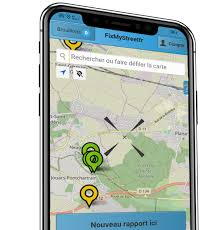There are now many works devoted to gender relations, or attentive to this perspective.
The overrepresentation of men on platforms such as Wikipedia (90%) or OpenstreetMap (95%) is now the subject of studies that attempt to identify the effects of this overrepresentation on the nature of contributions.
Only 18% of Wikipedia biographies are dedicated to women. For several years, a number of initiatives have been aimed at highlighting women, such as the group Without Pages group, which aims to create and improve Wikipedia articles about women, feminism, and other underrepresented topics. For several years, " edit-a-thons For several years now, "Women's Wikipedia" events have been held in various countries to encourage women to edit Wikipedia, to increase coverage of certain topics, and also to create pages for women who lack coverage. One researcher, Jess Wade, has undertaken to create several hundred biographies of women scientists.
Gender bias in OpenstreetMap
The overrepresentation of men among contributors to the collaborative map (95%) translates into biases in the types of locations that are labeled. According to Rachel Levine, Mapping Operations Coordinator at the American Red Cross, " stadium locations, strip clubs, and bars are much better documented than child care centers or women's health clinics are vastly underrepresented. 800,000 physician offices are labeled but only 10 abortion care facilities and only one domestic violence center." Tagging places and buildings on Openstreetmap is leading to discussions to improve the nomenclature and create new categories of attributes (tags). The overrepresentation of men in the collaborative mapping project thus weighs on what is deemed useful or worthy of being tagged on the map. In 2011, the proposal to introduce a distinction between "nightclub", "swinger club" and "brothel" (nightclub, swinger club and brothel-establishment dedicated to prostitution) was accepted while the proposal to create a "childcare" attribute was debated and rejected on the grounds that it was too similar to the existing "kindergarten" attribute. The "kindergarten" attribute was not adopted until 2013.Beyond differences in the scale of activity, men and women behave differently in the nature of the places and buildings they choose to document. With women more likely to tag buildings (67% for women vs. 35% for men), while men are more likely to document highways (39% for men, 23% for women).
... and in FixMyStreet
FixMyStreet is a British platform that allows people to report, from their phone, problems they encounter on the street.FixMyStreet has only 38% female contributors: 29% of reports are made by women (due in part to the fact that they are underrepresented among the most active contributors).
Using data made available by FixMyStreet, a team of researchers found differences in the reporting behavior of men and women. As seen with OpenstreetMap, men are more likely to report problems they encounter as drivers, such as potholes, while women are more likely to report problems they encounter as pedestrians, on the street or in parks, such as abandoned litter, dead animals, or tree-related problems. 74% of reports of abandoned needles, for example, come from women.
Based on current trends, FixMyStreet estimates that gender parity will be achieved by 2025 (for both users and reports). Regarding gender bias in the nature of reports, they admit that " this is a significant problem, which will be difficult to solve, as men and women experience their environment differently.
Référence :





